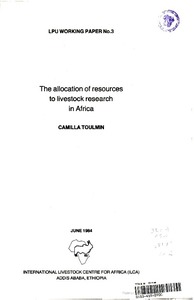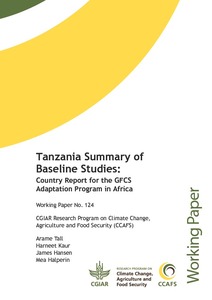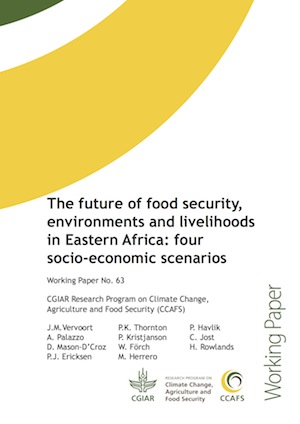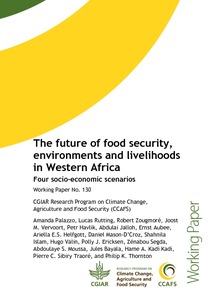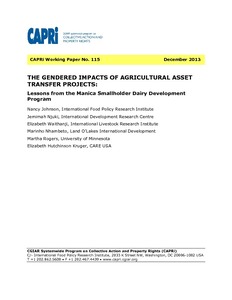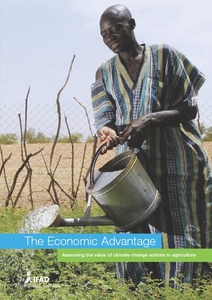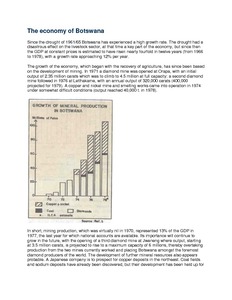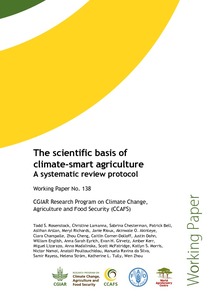Technological change and deforestation: a theoretical overview
This chapter spells out the theoretical framework for the discussion and case studies of the book. First, it provides precise definitions of technological change and classify technological change into different types based on their factor intensities. The discussion starts off with a single farm household. Two key concepts for understanding how that household will respond to technological changes are economic incentives and constraints. The former relates to how new technologies influence the economic return of different activities.
Temporal change in land use by irrigation source in Tamil Nadu and management implications
Interannual variation in rainfall throughout Tamil Nadu has been causing frequent and noticeable land use changes despite the rapid development in groundwater irrigation. Identifying periodically water-stressed areas is the first and crucial step to minimizing negative effects on crop production. Such analysis must be conducted at the basin level as it is an independent water accounting unit.
The allocation of resources to livestock research in Africa
Looks at the allocation of resources to livestock research in Africa. Assesses the role of agricultural research and its value to national governments. Investigates the appropriate criteria to use for decision making by comparing three kinds of decision-making models. Presents conclusions for policy-making.
Tanzania Summary of Baseline Studies: Country Report for the GFCS Adaptation Program in Africa
This report reflects upon the consolidated findings from the baseline and scoping studies conducted under the auspices of Global Framework for Climate Services (GFCS) Adaptation Programme in Africa. It identifies gaps in climate information access and use at the local level, type of climate services farmers and pastoralists need in Tanzania, relevant channels to reach farmers with requested services, lead-time and gender specific requirements.
The future of food security, environments and livelihoods in Eastern Africa: four socio-economic scenarios
This report presents 4 scenarios for the future of food security, agriculture, livelihoods and environments in East Africa. These scenarios were developed by the CGIAR Research Program on Climate Change, Agriculture and Food Security in collaboration with a wide range of regional stakeholders. The report discusses the theory and development process
The future of food security, environments and livelihoods in Western Africa: Four socio-economic scenarios
This working paper examines the development of regional socioeconomic scenarios for West Africa’s development, agriculture, food security and climate impacts. We present four globally consistent regional scenarios framed and outlined by regional experts who crafted narratives and determined key drivers of change. Stakeholders identified the type of actors driving change and the timeline of strategic planning as the most uncertain and most relevant factors of change affecting food security, livelihoods and environments in the region.
The Economic Advantage: Assessing the value of climate-change actions in agriculture
This report is aimed at readers who seek to build economic evidence in support of the inclusion of actions on agriculture in climate change plans and programmes, particularly at the national level under the umbrella of nationally determined contributions (NDCs) to the December 2015 Paris Agreement, which aims to restrict a rise in global temperatures and manage risks.
The economy of Botswana
Survey on the economy of Botswana, w. emphasis on mining production, gross domestic product, prices, cereal production, and livestock and meat export.
The impact of investment in smallholder irrigation schemes on irrigation expansion and crop productivity in Malawi
Reliance on rainfall for agriculture and increased climate change and variability pose growing production risks in developing countries. Agriculture in Sub-Saharan Africa is dominated by smallholder farmers who depend mainly on rain-fed agriculture, putting food security at both household and national levels at risk, especially in the event of drought. Investment in smallholder irrigation becomes a priority in developing countries if food security and national development goals are to be met, as their economies are agro-based.
The scientific basis of climate-smart agriculture: A systematic review protocol
Background: ‘Climate-smart agriculture’ (CSA)—agriculture and food systems that
sustainably increase food production, improve resilience (or adaptive capacity) of farming
systems, and mitigate climate change when possible—has quickly been integrated into the
global development agenda. However, the empirical evidence base for CSA has not been
assembled, complicating the transition from CSA concept to concrete actions, and
contributing to ideological disagreement among development practitioners. Thus, there is an


